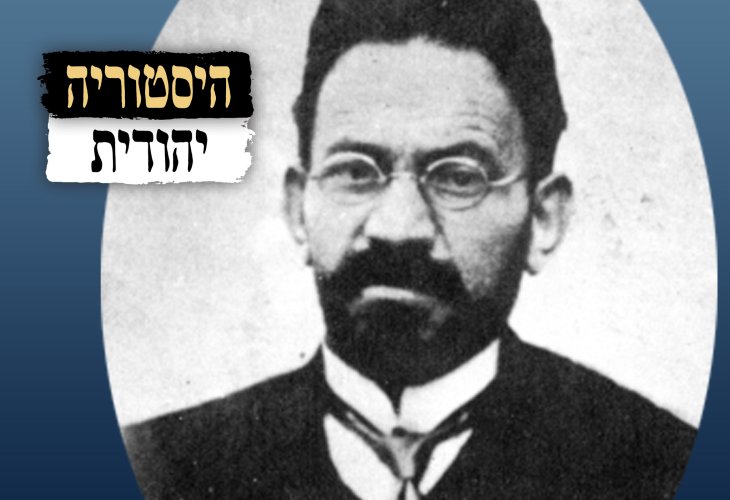The Mendel Beilis Trial: Uncovering the Truth Behind a Historical Accusation
Beilis was thrown into a Russian prison without a clue of the charges against him. During his "interrogation," he discovered he was accused of murdering a boy named Andrei Yushchinsky, found dead in a cave months earlier.
 Mendel Beilis
Mendel BeilisSummer 1911. Mendel Beilis was finishing up another day at the brick factory on the outskirts of Kiev when two Russian gendarmes approached him: "Are you Mendel Beilis?"
"Yes."
"You're under arrest."
Beilis found himself in a Russian jail, clueless about the charges. During his "interrogation," he learned he was accused of murdering young Andrei Yushchinsky, discovered dead in a cave four months earlier.
The boy had been mistreated, his body marked with wounds and bruises. The Russian crowds "knew" the Jews had used his blood to make matzah, a notorious libel... Leading experts examined the body, claiming its blood had been drained, which supposedly proved the Jews needed it. A flood of anti-Semitism swept through Russia.
Writers and intellectuals attempted to intervene with the Russian Tsar and his officials, urging a fair investigation. Even the young genius, Chazon Ish, drafted a letter to the judge, explaining that Jewish law prohibits using anyone's blood for matzah. Yet, their efforts seemed futile.
What began to crack the official narrative were accumulating testimonies showing the boy's parents weren't worried when he disappeared and expressed no sorrow when he was found dead. This was easily overlooked by Russian authorities. The real murderer was questioned and promptly released.
The trial began with a jury assembled. The authorities ensured the jurors harbored anti-Semitic views, believing in the notion that Jews murdered children. Hundreds of witnesses were called, and the court faced the central question: could Jewish tradition endorse using Christian blood for matzah? Absurd as it seems, the Russian court took it very seriously.
Father Pratines joined the fray, claiming extensive Talmudic knowledge, and insisted that the Talmud endorsed murdering Christian children. Beilis's lawyer, equipped with a prepared question, asked if Father Pratines might help with a Talmudic issue. Was there a character named "Baba Batra" in the Talmud and what was her role (baba means grandmother)? The clergyman replied that indeed there was such a grandmother, but he wasn't currently sure of her role... The Jewish audience burst into laughter, creating the first crack in the determined prosecutor's stance.
Despite the Russian prosecution's efforts and the biased trial, the jury concluded it was a fabrication, setting Mendel Beilis free. He moved to Israel in 1914, welcomed in Tel Aviv with an honor guard. In the end, the truth prevailed.

